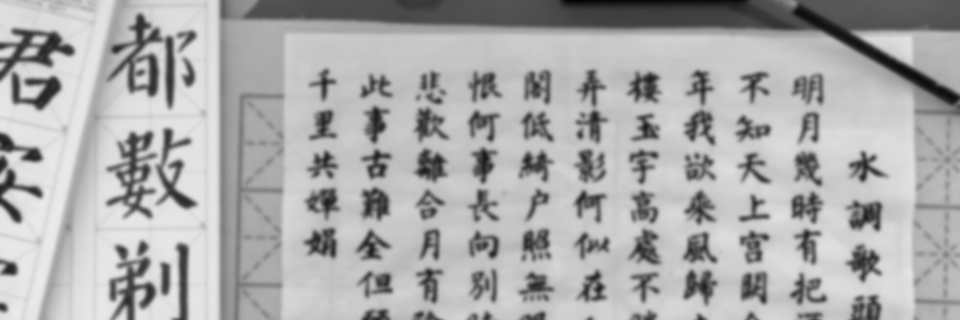The last successful emperor

Dear readers,
If you want to impress your Chinese visitors or business partners, tell them who your favoured Chinese emperor is. They will congratulate you on your detailed knowledge of Chinese history and may even start a discussion among themselves. Your humble editor's favoured emperor is Aisin-Gioro Hongli, a Manchu who adopted as his era name “Qianlong” (“Lasting Eminence”). His 60 years of rule (1736-1795) are seen as the last part of the “Golden Age” of the Manchurian empire, also known as the Qing Dynasty (1644-1911). He abdicated in time to avoid reigning longer than his grandfather Aisin-Gioro Xuanye, era name Kangxi (1661-1721).
Just before the end of his reign, the British King George III. made the last peaceful effort to enter into an open trade agreement with the Manchus. After many months of fruitless negotiations, the British Ambassador Lord Macartney was sent back with a letter from the Qianlong Emperor saying:
“Hitherto, all European nations, including your own country's barbarian merchants, have carried on their trade with our Celestial Empire at Canton. Such has been the procedure for many years, although our Celestial Empire possesses all things in prolific abundance and lacks no product within its own borders. There was therefore no need to import the manufactures of outside barbarians in exchange for our own produce. But as the tea, silk and porcelain which the Celestial Empire produces, are absolute necessities to European nations and to yourselves, we have permitted, as a signal mark of favour, that foreign merchant firms should be established at Canton, so that your wants might be supplied and your country thus participate in our beneficence.”
China was not closed for most parts of its history, and the exchange of goods and ideas was much more complex and multidirectional than the “Silk Road” meme is trying to make believe. However, China had no Hernan Cortes, no Odysseus or Sindbad, and no religion to peddle to heathens other than to accept the overlordship of the emperor on the Chinese throne, who was “exercising a pacifying control over barbarian tribes, the world over”, as the Qianlong Emperor wrote.
There is no also no Marco Polo or Ibn Battuta to be found among Chinese travellers apart from a few monks sneaking out of the country to fetch holy Buddhist scripts and the Muslim Eunuch Zheng He, who commanded a fleet which travelled all the way to Mombasa and Mecca to proclaim the rule of the Ming.
Outbound travel started only 200 years ago, when the first wave of Chinese immigration brought more than a million Chinese to South East Asia and Japan, followed by indentured labourers (“coolies”) who moved in large numbers to Australia, the US and British and French colonies to work in gold mines, building railways and replacing African slaves in the fields.
This basically different approach to tourism and immigration has strong consequences even today for the post-pandemic behaviour of the Mainland Chinese, even though they will not be aware of the deep cultural roots still influencing the behaviour in the 21st century. More about these consequences is discussed in the DEEP DIVE text of this week's COTMI China Outbound Tourism Market Intelligence, the “older brother” of COTRI WEEKLY.
Both brotherly publications are also acting in parallel by taking a summer break for the month of August. The next issue of COTRI WEEKLY will be published on September 7th 2023.
Your humble editor hopes that during the coming month you will be able to stay cool away from the heat waves, dry away from the floods and safe from the tornadoes, giant hailstones and all the other calamities we are just learning to recognise as the new normal.
As always, best wishes from Prof. Dr. Wolfgang Georg Arlt FRGS FRAS and the entire COTRI Weekly team to all our readers!
--------------------------------------------------------------------
COTRI WEEKLY is published every Thursday by COTRI China Outbound Tourism Research Institute, the world's leading independent research institute for information, training, research, and consulting relating to the Chinese outbound tourism market.
It includes a weekly reflection of developments in the market and information about activities of COTRI and some content of COTRI Intelligence.
COTRI Weekly is free of charge and it provides every week links to carefully selected online news items.
